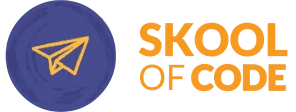It’s no secret that kids learn best when they’re engaged and excited about what they’re doing. But with so many different educational options out there, it can be hard to know where to start. This guide will help you find the best supplemental learning opportunities for your child!

What is Supplemental Learning?
Supplemental learning is defined as any type of learning that takes place outside of the traditional school setting. This can include things like after-school programs, weekend workshops, and even online courses.
There are many benefits to supplemental learning. For one, it can help kids who are struggling in school catch up to their peers. It can also provide a chance for gifted and talented students to explore their interests more deeply. Additionally, supplemental learning can help kids develop important social and emotional skills.
If you’re considering enrolling your child in a supplemental learning program, there are a few things to keep in mind. First, make sure the program is aligned with your child’s individual needs and goals. Second, choose a program that has experienced and qualified instructors. Finally, be sure to communicate with your child’s teachers to ensure that the supplemental learning program is complementary to what they’re doing in school.
Why is Supplemental Learning Important for Kids?
Supplemental learning is important for kids for a variety of reasons. First, it can help them fill in any gaps in their understanding of core concepts. Second, it can provide them with extra practice on skills they may be struggling with. Third, it can expose them to new and different ideas that they may not be exposed to in their regular school curriculum.
Supplemental learning can take many different forms, including after-school programs, summer camps, online courses, and tutoring. No matter what form it takes, supplemental learning can be a valuable addition to any child’s education.
What are some Supplemental Learning activities for kids?
There are a variety of supplemental learning activities that parents can do with their kids to help them succeed in school. Some supplemental learning activities include:
Providing extra practice at home: Parents can help their children master concepts by providing extra practice at home. This might involve working on problems together, doing additional practice problems from a workbook, or using online resources.
Enrolling in a tutoring program: A tutor can provide one-on-one or small group instruction to help children master difficult concepts. Tutoring programs can be found at local schools, community centers, or online.
Coding is a great activity for kids who want to explore more. It helps them understand how machines work and how to control them. Coding for kids is also an essential skill of the future, so it’s important for kids to learn it now.
Robotics for kids is a great way to explore more about how machines work. With robotics, kids can make their own robots and see them come to life. This is a great combination of STEM and coding that will enhance math and science understanding.
Playing educational games: There are many educational games available online and on mobile devices that can help kids learn while having fun. These games often target specific skills such as math, reading, or logic.
Going on educational field trips: Visiting museums, zoos, and other cultural institutions can help kids learn about the world around them. Many of these institutions offer special programs and activities for kids and families.
Art is an amazing expression for kids. It’s a creative way to express your thoughts, and with digital art tools like Sketchpad, you can bring your ideas to life. Kids love being able to see their thoughts and feelings come to life in a piece of art, and it’s a great way for them to learn about their own creativity.
One of the biggest challenges for students is preparing for AP exams. There are several factors that can influence performance on these exams, including student motivation, previous knowledge, and exam-taking experience. One way to combat these challenges is to supplement what you learn in school with additional tutoring and testing.
How can Parents incorporate Supplemental Learning into their child’s daily routine?
There are many ways parents can incorporate supplemental learning into their child’s daily routine. One way is to find educational apps and games that their child enjoys and can play on a regular basis. Another way is to set aside some time each day for reading and/or doing other educational activities together as a family. Additionally, parents can look for opportunities to teach their children new things throughout the day as they go about their normal routines. By taking advantage of everyday teachable moments, parents can help their children learn and grow in many different areas. If you’re feeling overwhelmed or burned out, take some breaks — give yourself some time to unwind and regain focus before diving back into your study plan.
Conclusion
There is no one-size-fits-all answer to the question of how much supplemental learning your child needs. However, we hope that this guide has given you some useful tips and information to help you make the best decision for your family. Every child is different, and what works for one may not work for another. Ultimately, it is up to you to decide what is best for your child and their unique needs. To build future-ready creators, we at SkoolOfCode believe in a holistic STEM-based coding curriculum that is personalized to fit the needs of each student. So, why wait and Book a FREE trial class today. Thank you for reading!



